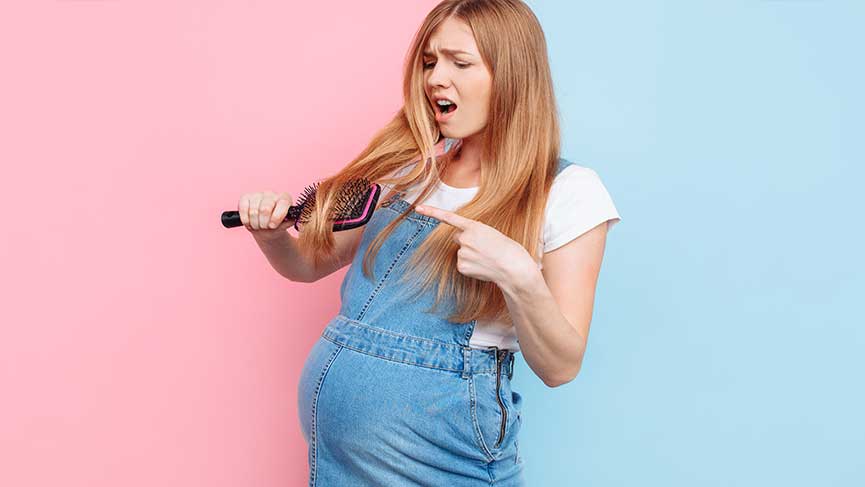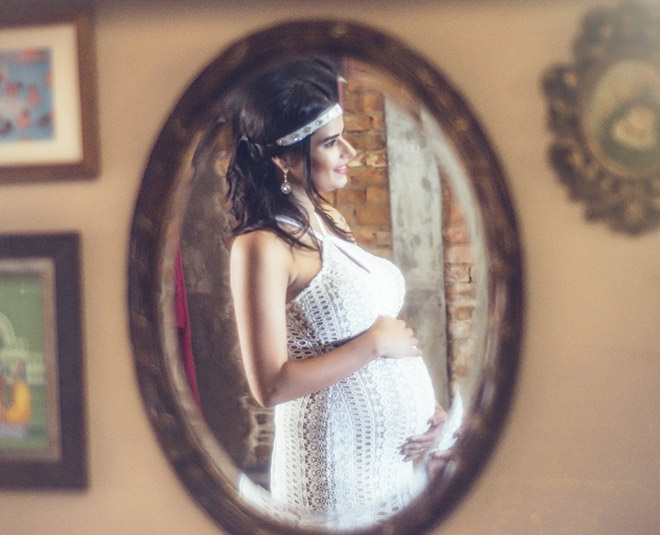Table Of Content

Some women may experience hair thinning and shedding due to stress or shock. This condition is called telogen effluvium, and it affects a small number of women during pregnancy. Both men and women lose an average of around 50 to 100 hairs each day. During pregnancy, rising estrogen levels slow down the natural cycle of hair follicle shedding. As a result, some women may actually lose fewer hairs while pregnant.
How do trees and green spaces enhance our health?
Over-cleansing robs your already-dry locks of their essential oils, so don’t wash your hair too often if you've been experiencing dry hair during pregnancy. And don’t skip conditioner, as extra-dry hair benefits from a moisture-rich softening agent after shampooing. Like all of the pregnancy symptoms you’re experiencing, the changes to your hair and nails are temporary. You can rein in the extra growth by keeping regular appointments with your stylist.
Medical Review Policy
Likewise, health issues may arise during pregnancy, leading to telogen effluvium. The shedding can be quite dramatic, especially if it’s related to an ongoing imbalance in hormones or essential vitamins. Most women see their mane return to its pre-pregnancy state as levels of estrogen and progesterone begin to normalize post-delivery. Traction alopecia, which arises from excessive hair pulling, can manifest when your hair undergoes harsh treatments. To safeguard against this, contemplate allowing your hair to flow naturally more frequently or altering your hairstyle periodically to evade repetitive strain on your hair.
Addressing shortfalls through diet and supplements: Does it help hair growth?
In this article, we will explore the factors that can contribute to severe hair loss during pregnancy, its potential causes, and some possible solutions to address this unique issue. It is a very common type of hair loss in women and people assigned female at birth. Postpartum hair loss is the excessive shedding of hair a few months after you give birth. It’s caused by hormone changes that occur during and after pregnancy. Obviously, seeing large clumps of hair in your hairbrush and excessive hair loss all of a sudden can be alarming.
How common is postpartum hair loss?
If your hair loss continues or you notice other symptoms, consider contacting your doctor to see if there’s another possible cause for hair loss, like alopecia areata or androgenic alopecia. Doctors sometimes prescribe minoxidil (Rogaine) if hair growth doesn’t return to previous levels, but this drug is not considered safe for use during pregnancy. That said, if you’re pregnant and noticing more hair loss than usual, your shedding may be caused by several other factors that could be occurring alongside—rather than as a result of—your pregnancy. Regarding treatments for other conditions like androgenic alopecia, most are not advisable during pregnancy. Aside from hormone-related hair loss during pregnancy, other completely normal causes of hair loss can occur during this time. Postpartum hair loss is a normal part of pregnancy and childbirth and won’t affect your baby.
Any postpartum hair loss solutions?

This article describes the hair changes a person can expect during and after pregnancy. “We want to be safe, and there are things that we just don’t have enough data on during pregnancy,” says Dr. Said. Massaging your scalp with fenugreek paste (just mash the seeds after soaking them overnight) could boost your hair’s fullness and luster. Fenugreek seeds have been touted as a skin and hair booster for years. Research is limited, but a 2010 study found that fenugreek-infused cream improved the suppleness of skin (and maybe your scalp?). Every piece of content at Flo Health adheres to the highest editorial standards for language, style, and medical accuracy.
Is hair loss normal after pregnancy?
Fortunately, it tends to taper off between six to 12 months,1 but that can feel like a long time for those experiencing this unfortunate pregnancy symptom. Like most issues that arise during pregnancy, you can thank those wild and crazy hormones for pregnancy hair loss, according to Dr. Enrizza P. Factor, a dermatologist and researcher. “The hormone changes that occur as a result of being pregnant can cause hair loss. This is because an increase in estrogen — and the corresponding decrease in progesterone — can lead to hair thinning and shedding,” she says. “Increased estrogen levels alter the natural hair cycle on your head.
During pregnancy, the rising estrogen levels slow down the natural cycle of hair follicle shedding and allow more hair to stay in the growing stage, known as the anagen phase. As a result, most pregnant patients see much less hair loss in pregnancy. Hair loss that is connected to pregnancy usually occurs after delivery. If you feel that you are experiencing unusual hair loss while you are pregnant, this may be due to a vitamin or mineral deficiency.
Mayo Clinic Minute: Expert advice for women with thinning hair - Mayo Clinic
Mayo Clinic Minute: Expert advice for women with thinning hair.
Posted: Sun, 28 Jan 2024 08:00:00 GMT [source]
Sofia Richie Grainge on Being an 'It' Girl, Pregnancy Hair Loss, and Nexxus Partnership - ELLE
Sofia Richie Grainge on Being an 'It' Girl, Pregnancy Hair Loss, and Nexxus Partnership.
Posted: Thu, 11 Apr 2024 07:00:00 GMT [source]
Severe hair loss during pregnancy is often temporary and linked to factors like hormones, stress, or health issues. To maintain healthier hair, follow a balanced diet, practice gentle hair care, and consult a healthcare provider if needed. Most hair loss treatments are not recommended during pregnancy due to potential risks. Understanding and addressing the causes can support hair health during this transformative period. During pregnancy, men and women naturally lose around 50 to 100 hairs daily. Rising estrogen levels during pregnancy often slow down hair follicle shedding, resulting in fewer hairs being lost.

By week 20 of pregnancy, your hair might feel thicker and look shinier and healthier than usual. Perelel offers a 1st Trimester Prenatal Pack that contains a whole host of nutrients that are good for your body, your baby, and also your hair. Consult with your doctor to determine which vitamins and minerals would be best for you. Dr Brooke Vandermolen is a practising Obstetrics & Gynaecology registrar doctor, who has worked and trained in a variety of London NHS hospitals.
Hair loss can result from trauma to the hair follicles, regardless of whether you are pregnant. Wearing your hair tightly in ponytails or buns frequently can lead to hair loss. Additionally, certain beauty treatments may contribute to hair shedding. IDA is diagnosed with bloodwork and is typically monitored throughout pregnancy as part of routine prenatal testing. Hair loss in these situations is also not permanent, but hair thickness may not return to its baseline until the mineral deficiency has been returned to normal ranges. While hair loss can be a normal part of the postpartum period, excessive hair loss during pregnancy can sometimes indicate a medical issue, such as a thyroid disorder or mineral deficiency.
Though it can be alarming, this process is the body's way of correcting the unusual hair growth patterns experienced during pregnancy. If you see a lot of hair loss or bald spots while pregnant, talk to your doctor. When it comes to hair loss during pregnancy, there's a swirl of myths that create unnecessary worry. Let's debunk a few common misconceptions and set the record straight. From hair dye to house paints, there are a few products or lifestyle habits pregnant women and their partners should be cautious of during pregnancy.
Hypothyroidism is more common and affects up to 3% of pregnant patients.4 Symptoms can include hair loss as well as fatigue, muscle cramps, intolerance to heat or cold, and constipation. During pregnancy, there is an increase in the level of estrogen hormones. Estrogen causes hair to remain in a growing phase and stimulates the growth of your hair. While you are pregnant, you should expect a full, luxurious head of hair. Some people experience a cycle of regrowth and hair loss, while for others the loss is unpredictable. It’s possible, during pregnancy or any other time, to have hair loss from trauma to the hair follicles themselves.

No comments:
Post a Comment